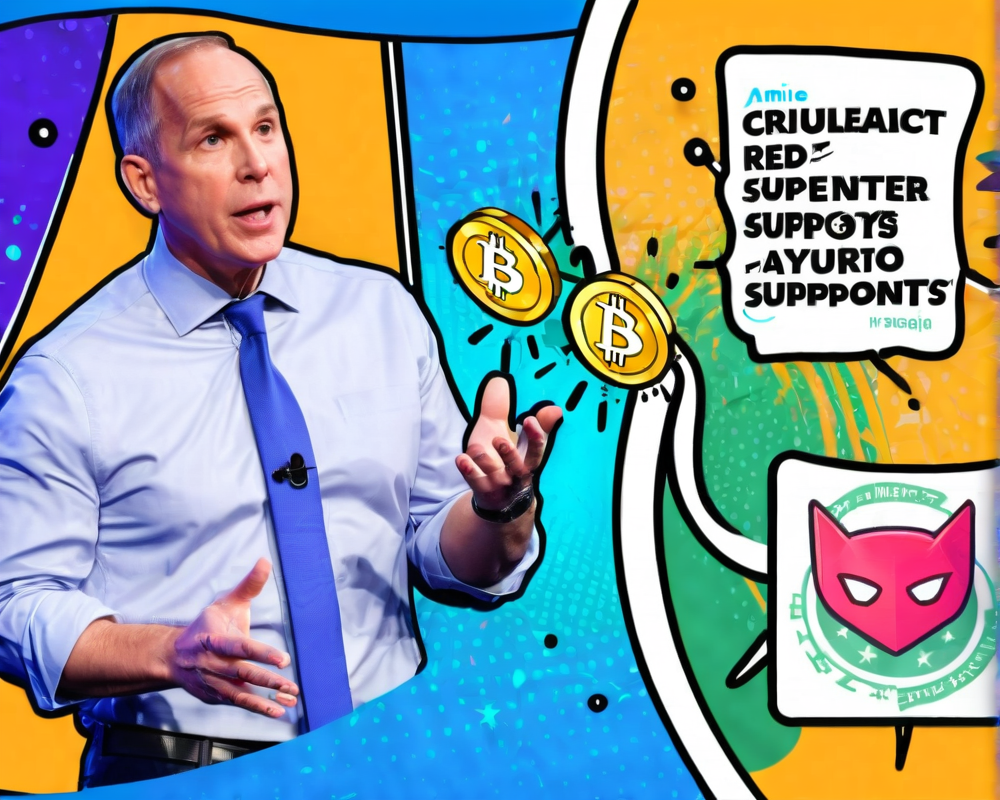Rep. Curtis Warns of Fragile Crypto Support
At the Permissionless III conference in Salt Lake City, Representative John Curtis made headlines while discussing the delicate state of bipartisan support for cryptocurrencies. Curtis emphasized the importance of approaching digital asset regulation with a united front, stating that if crypto becomes a partisan issue, legislative progress could face significant hurdles.
Understanding Bipartisan Dynamics
During the panel, Curtis elaborated on historical moments of bipartisan cooperation, like the repeal of Staff Accounting Bulletin-121, suggesting that similar unity could be possible in the future, albeit cautiously. He indicated that it’s imperative for both crypto advocates and policymakers to work together. “Anything in Washington that becomes partisan struggles,” he pointed out, leaving many attendees in a mix of hope and trepidation.
Senator Lee’s Warning: A CBDC Catastrophe?
Joining Curtis on stage was Senator Mike Lee, who openly criticized the potential for the Federal Reserve to launch a Central Bank Digital Currency (CBDC). Lee argued vehemently against overregulation, further defining cryptocurrencies as mediums of exchange rather than securities or commodities. “The worst thing that could happen to crypto is for the Federal Reserve to create a CBDC,” he warned, likely sending shivers down the spines of crypto enthusiasts in attendance.
What Does This Mean for Traditional Banking?
- Shift Towards Digital Currency: If a CBDC becomes a reality, traditional banking could face serious competition.
- Implications for Privacy: The level of government control over a CBDC could lead to privacy concerns for consumers.
- Potential for Overregulation: More governmental oversight might ultimately stifle innovation in the crypto sector.
Ryan Salame’s Allegations of Targeting
Meanwhile, former FTX executive Ryan Salame has made severe allegations against the U.S. government regarding his treatment following his campaign contributions to the Republican Party. Salame, in a recent appearance on a Tucker Carlson episode, claimed the authorities are punishing him for political donations while other politically-associated figures, such as Sam Bankman-Fried, haven’t faced the same scrutiny.
Unequal Treatment in the Crypto World?
Salame’s statement resonates with fears of uneven enforcement in the regulatory landscape, pointing to an ironic twist where one party’s contributions lead to legal woes while another seems to be off the hook:
“You have Sam Bankman-Fried, who’s in prison, but he’s not been charged with any campaign finance violations. He gave it to Democrats.”
Bitnomial’s Legal Challenge Against the SEC
Adding to the day’s drama, crypto exchange Bitnomial filed a lawsuit against the SEC, claiming the regulator is overstepping its bounds by labeling XRP a security. They argue that cryptocurrencies, including XRP, are already covered by the Commodity Futures Trading Commission (CFTC) as commodities.
What’s at Stake for Bitnomial?
- Trade Restrictions: Limiting the exchanges’ ability to list XRP futures could severely impact market liquidity.
- Legal Precedent: A ruling in favor of Bitnomial could change the classification of cryptocurrencies across the board.
- Potential SEC Reforms: This case might force the SEC to reevaluate its jurisdictional reach in the crypto landscape.
Conclusion: The Road Ahead for Crypto
As representatives dance around the fragile bipartisan support, concerns over overregulation, and the implications of campaign finance allegations, the future of cryptocurrencies hangs in the balance. How policymakers respond will shape the road ahead for digital assets, making it vital for advocates and supporters to stay informed and engaged.




